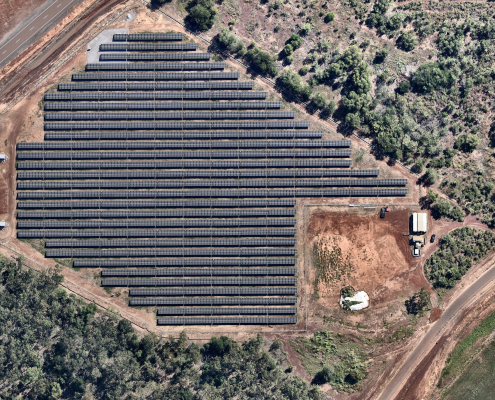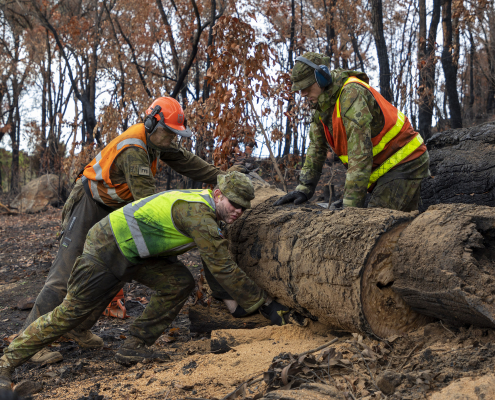Climate and Environmental Security
Research and expertise on environmental issues and climate change that will facilitate the planning and effective implementation of the Defence response to climate related threats. This includes research on climate change, renewable energy, water, pollution and natural hazards, and on the human communities affected by associated environmental change.
UWA has world-recognised researchers active in climate and environmental research from a variety of discipline areas, including physical sciences, biological sciences, engineering, medicine, and social sciences. These address not only technical and biological aspects of the environment, but also economic, social, behavioural, policy and decision-making aspects.
Capabilities and UWA Competitive Advantage
- Expertise across the key environmental issues, including climate change, renewable energy, soil degradation, land restoration, water, vegetation, pollution and natural hazards.
- A programme of research centred on understanding and improving coastal resilience, where healthy, sustainable and stable coastlines are a key enabler to adequately protecting and defending our country and communities. Includes:
- Identifying the feedbacks that occur between people and the environment in socio-ecological systems, to understand the relationships between people’s behaviours and regional-scale changes in coastal environments;
- Exploring the role of protected areas in enabling resilience in coastal systems;
- The biophysical science underpinning successful marine and coastal habitat restoration or enhancement, to assist in stabilising and protecting coastlines from natural hazards;
- Exchanging western and Traditional Knowledge to understand the historical changes of our coastline and assist in re-connecting First Peoples to Sea Country through co-led restoration activities;
- The governance structures required to improve coordinated and effective management of coastal areas;
- Quantifying the co-benefits of nature-based coastal protection and developing frameworks to prioritise investment.
- Research into the economics of natural hazard events to assist in shifting focus to more cost-effective mitigation and away from cleaning up the damages, which include significant costs to people’s lives and wellbeing, environments, infrastructure and Defence resources. This includes how to measure the intangible social and environmental outcomes and their mitigation options, and integrate these in decision support platforms that weigh up the financial, social and environmental benefits and costs of mitigation
- Understanding the acceptable trade-offs and ‘social licence to operate’ granted by communities for developments, infrastructure and environmental changes to inform forward-looking planning, including for how we secure our energy future using renewables.
- Research into coastal ocean influence on climatic, biological and geological processes, Aquatic Ecology and Ecosystem Studies. With a focus on the study of water resources (water and wastewater), ecological engineering and environmental engineering, with an emphasis on the development of innovative technologies.
- Integrated Coastal Analyses and Sensor Technology (ICoAST) is developing technologies and workflows, collecting and analysing data from drones and autonomous vessels of nearshore variables including bathymetry, waves and currents. These data are key for understanding coastal ocean processes, marine habitat dynamics, and have a range of defence applications.
- Research on the occurrence, roles and food-security implications of dangerous fungal, bacterial and viral threats in food crops, livestock pastures and plant produce in Australia to ensure the security of associated livestock and food chains.
- Research on nutrient uptake and ion toxicity in the soil-plant-water-microbe continuum, including work on major nutrients, micronutrients and toxic ions, aluminium, arsenic, zinc and sodium.
Key Contacts
UWA Defence and Security Institute
Phone: +61 8 6488 4742
Email: defenceprogram@uwa.edu.au
Oceans Institute: oceans@uwa.edu.au
Institute of Agriculture: ioa@uwa.edu.au
Centre for Environmental Economics and Policy: abbie.rogers@uwa.edu.au (co-director)
Outcomes and Impact
- Frameworks to guide future land-use planning of the coastal zone, and decision support tools to prioritise investment in coastal protection, leading to more resilient coastlines and coastal communities.
- Identification and elimination of threats from the evolution of dangerous new races of fungal and bacterial toxin profiles resulting from increasingly changing climates and farming systems.
Facilities
The research in this area cuts across many areas including:



